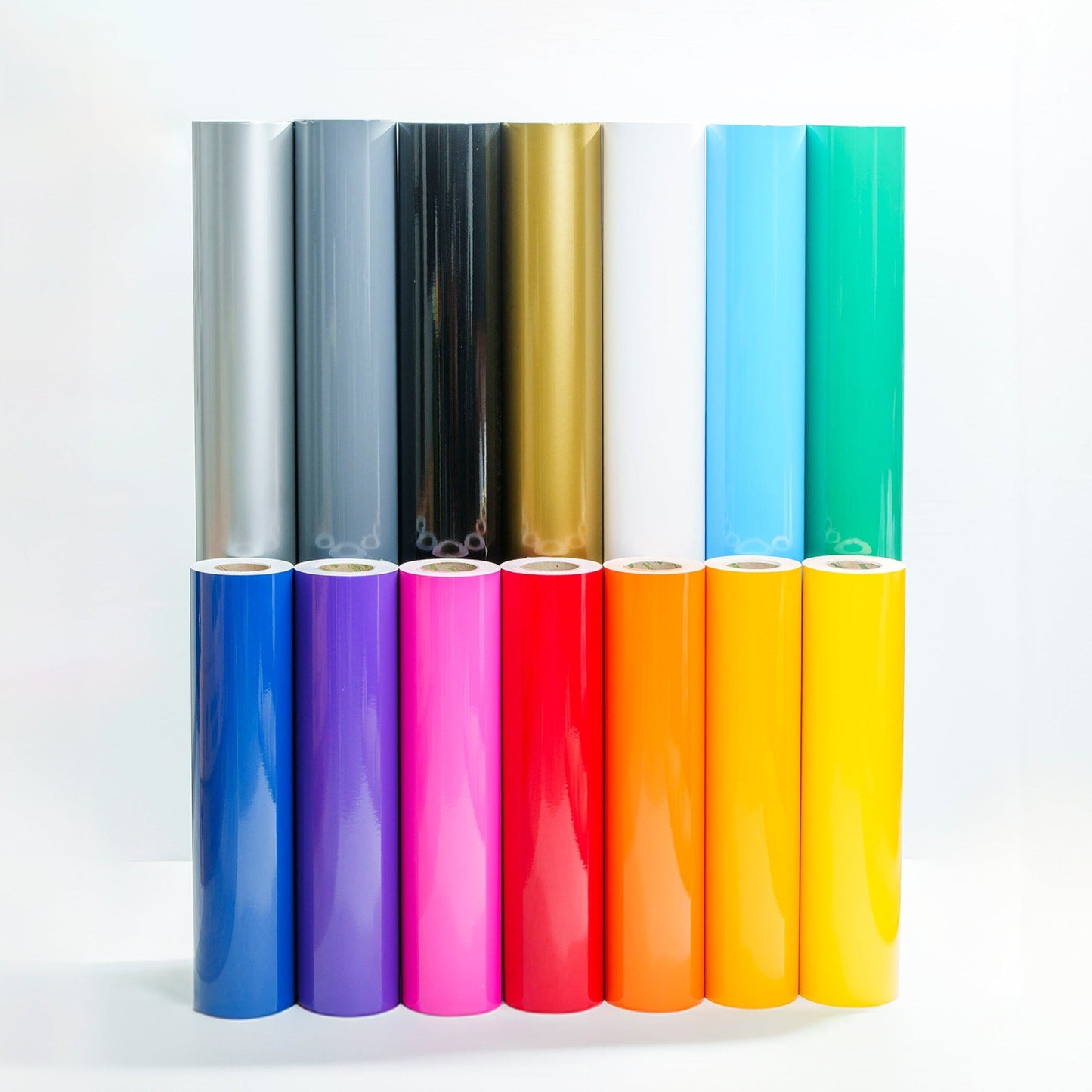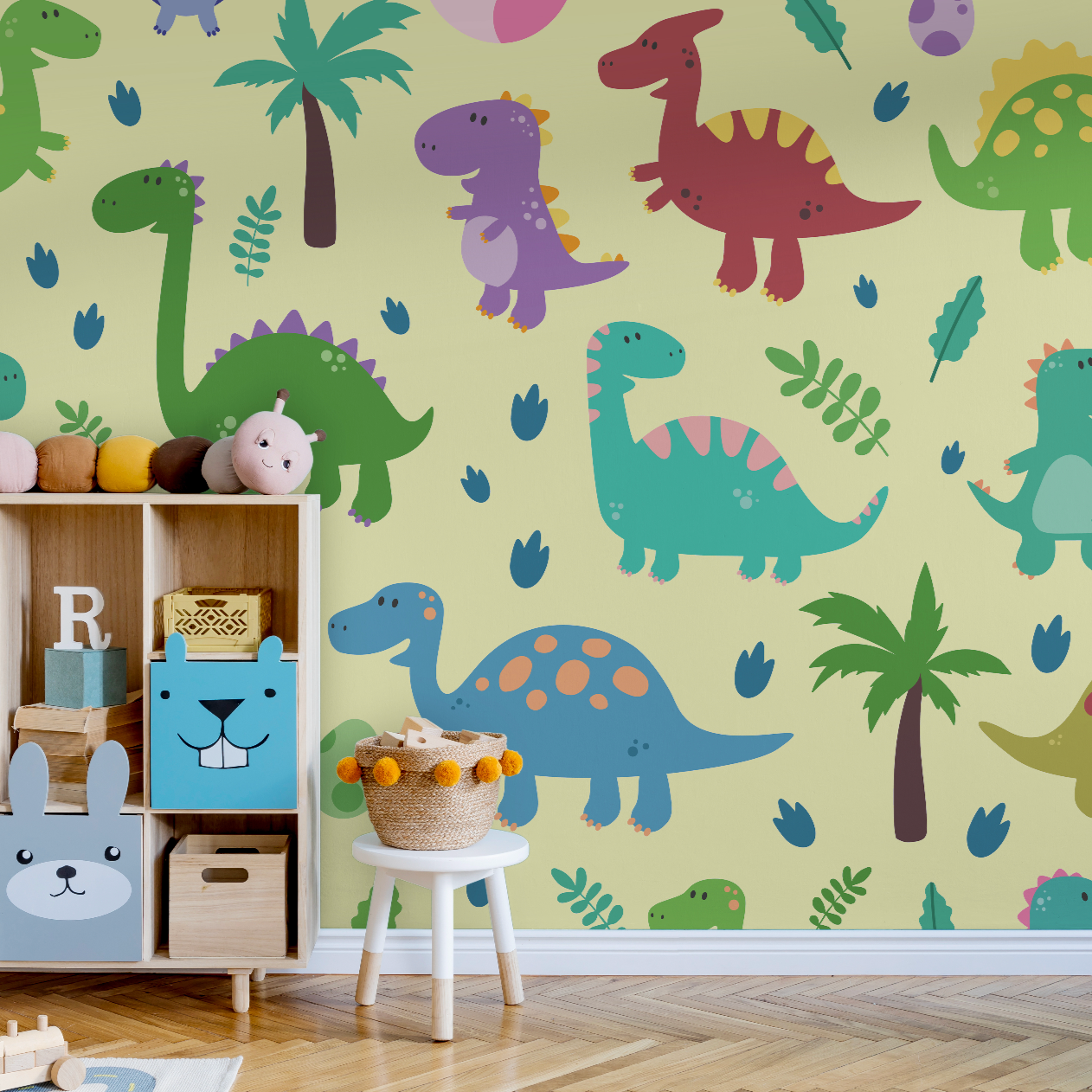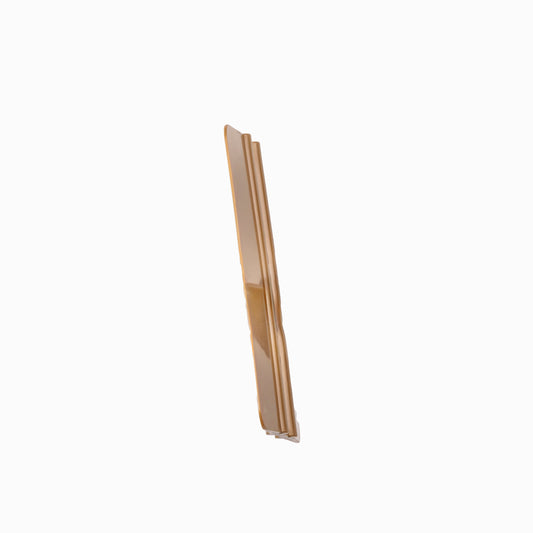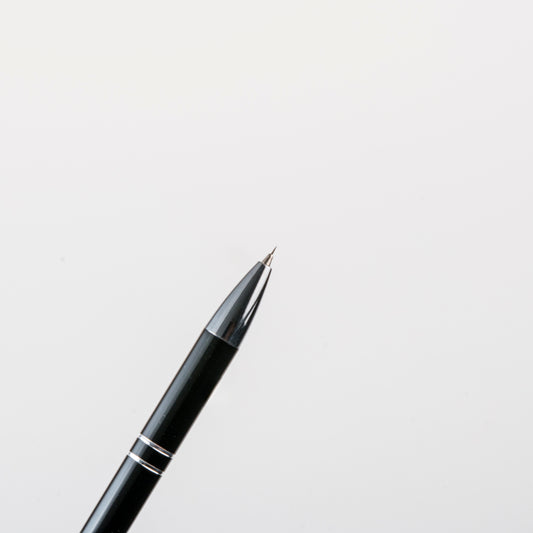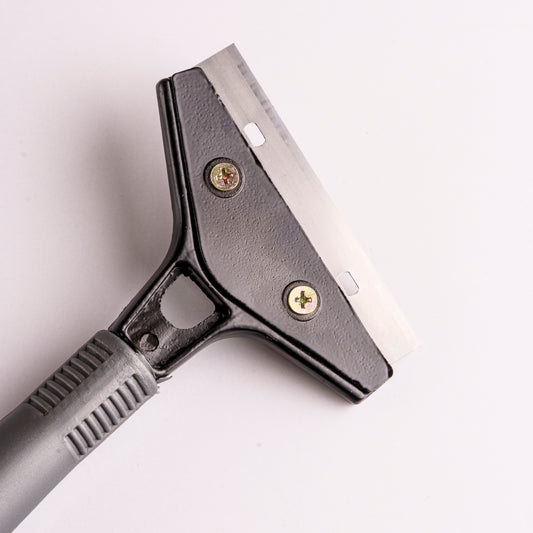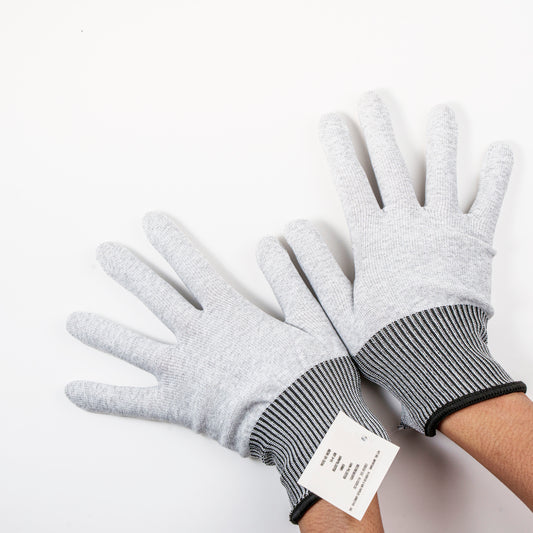Product Description
Presentation of the product:
Name: Ardigital Gloss Adhesive Vinyl-Permanent Adhesive (P1) 24 In x 10 Yds
The Ardigital Gloss Adhesive Vinyl making it versatile for a variety of projects.
Length Quantity: 54 yds
Online sale:
- Width: 48 inch
- Lenght: 54 yds
Durability: 5 years
Description: Ardigital cutting vinyl, is a structure composed of a semi-rigid PVC film, bright colors. It allows light to pass through without being translucent.
They are designed for applications in the graphic arts sector; with an acrylic based adhesive with good cohesion and adhesive strength, high transparency, very good cohesion, good chemical and physical stability, good behavior during cutting and die-cutting, good adhesive strength. Its backing is a siliconized supercalendered Kraft paper with high dimensional stability that makes the structure a material of excellent performance.
Application and installation
Ideal for manufacturing labels, signs and self-adhesive advertising pieces made by plotter cutting systems and screen printing, requires good dimensional stability.
For galvanized-polystyrene-acrylic-glass-metal sheet.
Printing: It is only allowed by screen printing and UV systems.
For offset printing system, vinyl with "primer" is recommended, which accelerates ink drying and improves anchorage.
Material adhesive
- P1: Permanent.
- Service temperature: -10°CA 90°C.
- Application temperature: 0°CA 40°C.
- Backing: K135S.
- Weight: 80gr.
Cutting Vinyl in front mode, with configuration: gloss vinyl, pressure 7, blade in 3 (auto-adjustable, standard, premium) speed 2 and passes 1.
It is recommended to use 45° blades, if you have a cameo plotter validate by increasing the pressure of this one.
Limitations of use
The product is not designed or recommended for the following uses and applications:
- Walls or walls.
- Curved or corrugated surfaces requiring superior conformability and low shrinkage.
- Surfaces that do not have adequate cleaning, preparation and/or finishing.
- Surfaces with low surface energy or with presence of release agents (PTFE, silicones, waxes, etc.).
- Paints that do not present adequate drying, anchorage and curing or irregular surfaces with pores or projections.
- Oxidized surfaces.
- Non-rigid and flexible substrates that tend to lose their stability or original shape.
- Bonding over existing graphics that need to remain intact during vinyl removal.
- Contact with chemical compounds, fuels and/or exposure to environments with presence of organic vapors, acid gases, etc.
Vinyl Removal
Aspects to take into account for an efficient removal of vinyl:
- Removal often requires the use of heat and/or chemicals (interaction with the surface or surface affectation should be evaluated).
- Removal should be performed slowly and at an angle of approximately 90° between the surface and the vinyl.
- Adhesive residue may remain on the surface, depending on the type of surface and compatibility with the adhesive, as well as the method used for removal.
Before starting production, it is recommended to test the substrates previously used due to the different compositions they may have.
ARDIGITAL
Ardigital Gloss Adhesive Vinyl-Permanent Adhesive (P1) 48 In x 54 Yds
Ardigital Gloss Adhesive Vinyl-Permanent Adhesive (P1) 48 In x 54 Yds
SKU:
Couldn't load pickup availability
Product Description
Presentation of the product:
Name: Ardigital Gloss Adhesive Vinyl-Permanent Adhesive (P1) 24 In x 10 Yds
The Ardigital Gloss Adhesive Vinyl making it versatile for a variety of projects.
Length Quantity: 54 yds
Online sale:
- Width: 48 inch
- Lenght: 54 yds
Durability: 5 years
Description: Ardigital cutting vinyl, is a structure composed of a semi-rigid PVC film, bright colors. It allows light to pass through without being translucent.
They are designed for applications in the graphic arts sector; with an acrylic based adhesive with good cohesion and adhesive strength, high transparency, very good cohesion, good chemical and physical stability, good behavior during cutting and die-cutting, good adhesive strength. Its backing is a siliconized supercalendered Kraft paper with high dimensional stability that makes the structure a material of excellent performance.
Application and installation
Ideal for manufacturing labels, signs and self-adhesive advertising pieces made by plotter cutting systems and screen printing, requires good dimensional stability.
For galvanized-polystyrene-acrylic-glass-metal sheet.
Printing: It is only allowed by screen printing and UV systems.
For offset printing system, vinyl with "primer" is recommended, which accelerates ink drying and improves anchorage.
Material adhesive
- P1: Permanent.
- Service temperature: -10°CA 90°C.
- Application temperature: 0°CA 40°C.
- Backing: K135S.
- Weight: 80gr.
Cutting Vinyl in front mode, with configuration: gloss vinyl, pressure 7, blade in 3 (auto-adjustable, standard, premium) speed 2 and passes 1.
It is recommended to use 45° blades, if you have a cameo plotter validate by increasing the pressure of this one.
Limitations of use
The product is not designed or recommended for the following uses and applications:
- Walls or walls.
- Curved or corrugated surfaces requiring superior conformability and low shrinkage.
- Surfaces that do not have adequate cleaning, preparation and/or finishing.
- Surfaces with low surface energy or with presence of release agents (PTFE, silicones, waxes, etc.).
- Paints that do not present adequate drying, anchorage and curing or irregular surfaces with pores or projections.
- Oxidized surfaces.
- Non-rigid and flexible substrates that tend to lose their stability or original shape.
- Bonding over existing graphics that need to remain intact during vinyl removal.
- Contact with chemical compounds, fuels and/or exposure to environments with presence of organic vapors, acid gases, etc.
Vinyl Removal
Aspects to take into account for an efficient removal of vinyl:
- Removal often requires the use of heat and/or chemicals (interaction with the surface or surface affectation should be evaluated).
- Removal should be performed slowly and at an angle of approximately 90° between the surface and the vinyl.
- Adhesive residue may remain on the surface, depending on the type of surface and compatibility with the adhesive, as well as the method used for removal.
Before starting production, it is recommended to test the substrates previously used due to the different compositions they may have.
Products customers bought together
3M Squeegee PA1-G Gold
ADH Plastic Vinyl Scraper Tool
ADH Vinyl Installation Gloves
